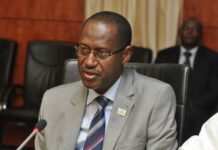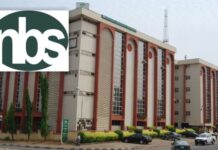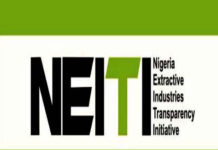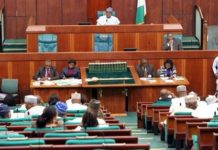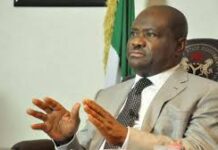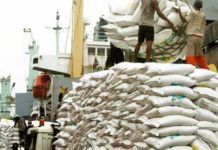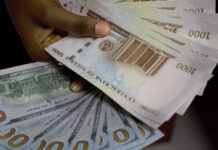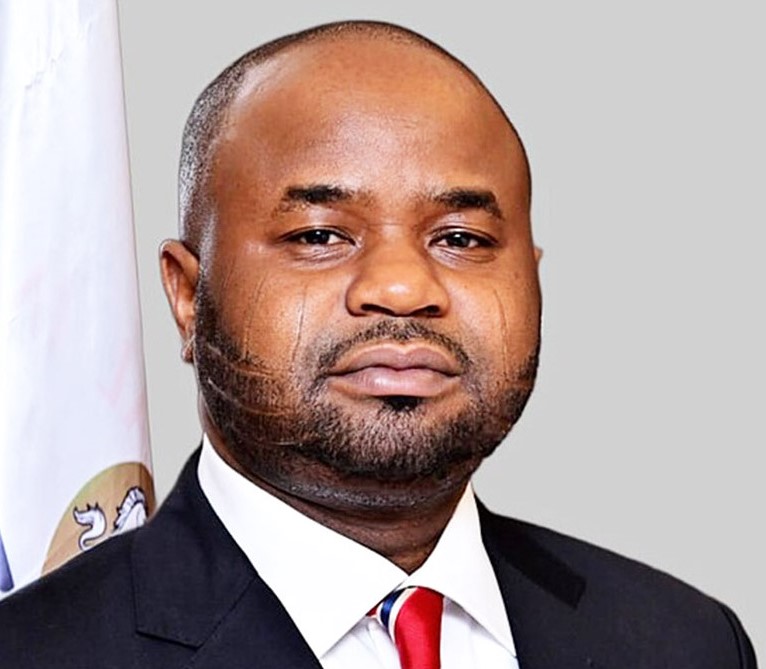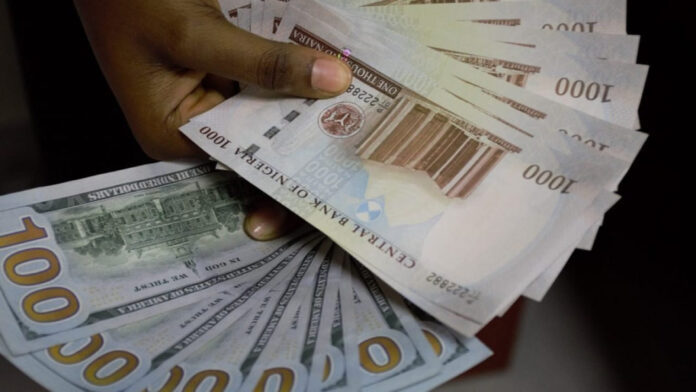
Naira Drops to ₦1,399 Per Dollar at Official FX Market
The Nigerian foreign exchange (FX) market witnessed a historic drop in the value of the naira, reaching an unprecedented intraday rate of N1,399 per dollar at the official market on Thursday.
Data sourced from the Financial Markets Dealers’ Quotations (FMDQ) revealed a substantial 6.15 percent depreciation compared to the N1,313 rate observed during intraday trading just a day earlier.
Furthermore, the lower segment of intraday trading experienced a notable 11.28 percent decline, with the dollar being quoted at N789 on Thursday, in contrast to N700 on Wednesday.
As the trading day concluded, the naira continued its slide, marking a 2.08 percent loss against the dollar. The closing rate stood at N900.96, down from the N882.24 recorded on Wednesday at the Nigerian Autonomous Foreign Exchange Market (NAFEM).
These developments underscore growing concerns about the stability of the naira in the face of persistent challenges in the foreign exchange market, with implications for various sectors of the economy.
In a concerning development, Nigeria’s currency witnessed a historic decline, plunging to a record low of N1,416 per dollar in the parallel market. This drastic drop can be attributed to robust demand coupled with a shortage of available dollars, as traders opt to hoard the limited currency.
The current exchange rate reflects a substantial 15.19 percent depreciation year-on-year when compared to the N1,200 rate recorded at the start of the month.
Read Also:
This trend raises significant concerns about the stability of the country’s currency and prompts closer scrutiny of factors contributing to the heightened demand and scarcity in the forex market.
Cardoso emphasized a coordinated approach with fiscal measures to expedite the process, stating, “We believe that the naira is currently undervalued, and coupled with coordinated measures on the fiscal side, we will expedite genuine price discovery in the near term. This coordinated approach will contribute to a more balanced and stable exchange rate.”
Highlighting collaborative efforts, he pointed to initiatives ensuring that all foreign exchange (FX) inflows pass through the Central Bank.
At the money market on Thursday, the Overnight (O/N) rate increased by 1.80 percent to close at 21.75 percent as against the last close of 19.95 percent, and the Open Repo (OPR) rate increased by 1.84 percent to close at 20.64 percent compared to 18.80 percent on the previous day, a report by FSDH research showed.
In its scheduled Primary Market Auction held on January 24, the CBN conducted a robust sale of Nigerian Treasury Bills (NT-Bills), amounting to a total of N231.82 billion. The auction featured offerings across different tenors, including the 91-day (N7.85 billion), 182-day (N6.44 billion), and 364-day (N217.53 billion).
Despite the Central Bank’s effort to manage the auction, the stop rates for the tenors saw notable increases. The 91-day tenor cleared at 5.0 percent, marking a significant rise of 256 basis points (bps). Similarly, the 182-day and 364-day tenors recorded higher stop rates of 7.15 percent (+293 bps) and 11.54 percent (+314 bps), respectively.
The auction drew considerable market interest, evidenced by a substantial oversubscription rate of 369 percent. Bid-to-cover ratios stood at 1.62x for the 91-day tenor, 5.41x for the 182-day, and 4.78x for the 364-day, indicating a strong demand for the offered NT-Bills.
This successful auction reflects investor confidence in the Nigerian Treasury Bills market, despite the adjusted stop rates. Analysts will be closely monitoring these developments for insights into market dynamics and the broader economic landscape.


